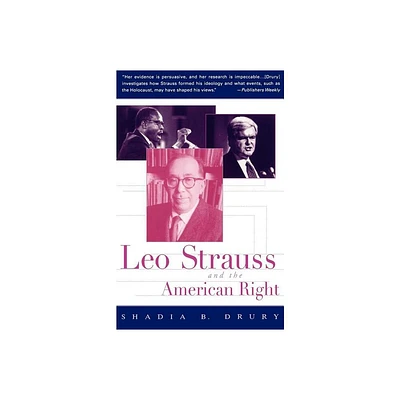Home
Philosophy, History, and Tyranny: Reexamining the Debate between Leo Strauss Alexandre Kojève
Loading Inventory...
Barnes and Noble
Philosophy, History, and Tyranny: Reexamining the Debate between Leo Strauss Alexandre Kojève
Current price: $99.00


Barnes and Noble
Philosophy, History, and Tyranny: Reexamining the Debate between Leo Strauss Alexandre Kojève
Current price: $99.00
Loading Inventory...
Size: Hardcover
*Product Information may vary - to confirm product availability, pricing, and additional information please contact Barnes and Noble
On Tyranny
remains a perennial favorite, possessing a timelessness that few philosophical or scholarly debates have ever achieved. On one hand,
is the first book-length work in Leo Strauss's extended study of Xenophon, and his "Restatement" retains a vivacity and directness that is sometimes absent in his later works. On the other, "Tyranny and Wisdom" is perhaps the most succinct yet fullest articulation of Alexandre Kojève's overall political thought, and it presents what may be the most uncompromising alternative to Strauss's position as a whole. This volume contains for the first time a comprehensive and critical examination of the debate from scholars well versed in the thought of Strauss, Kojève, Hegel, Heidegger, and the end of history thesis. Of particular interest will be the appendix, which offers for the first time Kojève's unabridged response to Strauss, a response previously available only from the Fonds Kojève at Le Bibliothèque Nationale de France. Accessible to students and scholars alike, this volume works equally well in the classroom and as a resource for more advanced research.
remains a perennial favorite, possessing a timelessness that few philosophical or scholarly debates have ever achieved. On one hand,
is the first book-length work in Leo Strauss's extended study of Xenophon, and his "Restatement" retains a vivacity and directness that is sometimes absent in his later works. On the other, "Tyranny and Wisdom" is perhaps the most succinct yet fullest articulation of Alexandre Kojève's overall political thought, and it presents what may be the most uncompromising alternative to Strauss's position as a whole. This volume contains for the first time a comprehensive and critical examination of the debate from scholars well versed in the thought of Strauss, Kojève, Hegel, Heidegger, and the end of history thesis. Of particular interest will be the appendix, which offers for the first time Kojève's unabridged response to Strauss, a response previously available only from the Fonds Kojève at Le Bibliothèque Nationale de France. Accessible to students and scholars alike, this volume works equally well in the classroom and as a resource for more advanced research.

















